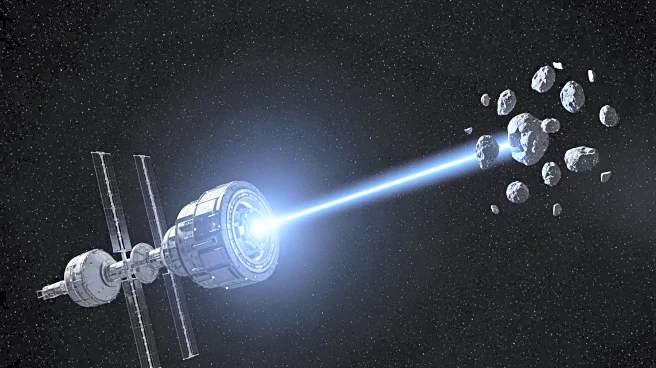What's Happening?
The ALBATOR project, funded by the European Commission, is exploring the use of ion beams to remove space debris without physical contact. This innovative approach aims to address the growing issue of space debris, which poses risks to satellites and
the International Space Station. The project, coordinated by the French startup Osmos X, involves universities in Spain and Germany, and NorthStar's Luxembourg branch. ALBATOR seeks to provide a safer solution to space sustainability challenges by avoiding the risks associated with capturing or docking debris. The project is part of the European Innovation Council Pathfinder program, which supports high-risk, deep-tech projects.
Why It's Important?
Space debris is a significant concern for the aerospace industry, as it threatens the safety and functionality of satellites and other space assets. The ALBATOR project's non-kinetic approach could revolutionize debris management, reducing collision risks and enhancing the longevity of space missions. This initiative aligns with global efforts to ensure sustainable space exploration and utilization. By potentially reducing the need for physical intervention, the project could lower costs and increase the efficiency of debris removal, benefiting both commercial and governmental space operations.
What's Next?
The ALBATOR project is set to run until February 2029, with a technology demonstrator flight date yet to be announced. As the project progresses, stakeholders in the space industry, including satellite operators and space agencies, will likely monitor its developments closely. Successful implementation could lead to broader adoption of ion beam technology for debris management, influencing future space policy and international collaboration on space sustainability.
Beyond the Headlines
The ethical implications of space debris management are significant, as they involve the stewardship of shared orbital environments. The ALBATOR project highlights the need for innovative solutions to address the growing debris problem, which could impact future generations' ability to access and utilize space. Additionally, the project's success could spur advancements in related technologies, such as space propulsion systems and situational awareness tools.















